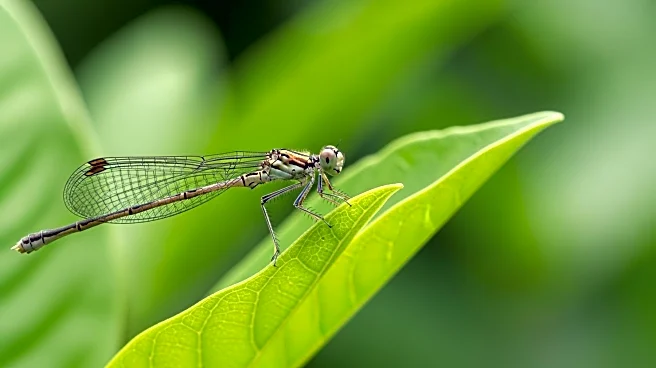What's Happening?
For the first time, mosquitoes have been discovered in Iceland, a country historically free from these insects. The Natural Science Institute of Iceland confirmed the presence of three Culiseta annulata
mosquitoes, found approximately 20 miles north of Reykjavik. Entomologist Matthías Alfreðsson identified the mosquitoes, which were captured by Björn Hjaltason in his backyard. The discovery is significant as Iceland, along with Antarctica, has been one of the few places without a mosquito population. The mosquitoes may have been introduced via ships or containers, and their presence could indicate a shift due to climate change, although Alfreðsson noted that the species is well adapted to colder climates.
Why It's Important?
The presence of mosquitoes in Iceland is a notable indicator of climate change impacts, as rising temperatures and milder winters create favorable conditions for these insects. This development could have broader implications for Iceland's ecosystem and public health, as mosquitoes are known carriers of diseases. While the Culiseta annulata species does not carry known infections in Nordic regions, their arrival highlights the potential for new insect species to establish themselves in Iceland due to global warming and increased international transportation. This could lead to changes in local biodiversity and necessitate new public health measures.
What's Next?
Further monitoring is planned for the spring to assess the spread of mosquitoes in Iceland. Authorities may need to consider measures to control mosquito populations and prevent potential health risks. The discovery could prompt discussions on climate adaptation strategies and the need for increased vigilance in tracking invasive species. Iceland's efforts to combat climate change, such as carbon capture initiatives, may be further emphasized as the country faces new environmental challenges.
Beyond the Headlines
The introduction of mosquitoes to Iceland raises questions about the ethical and ecological implications of climate change. As global temperatures rise, countries previously unaffected by certain species may need to adapt to new ecological dynamics. This situation underscores the interconnectedness of global ecosystems and the importance of international cooperation in addressing climate change and its effects.









